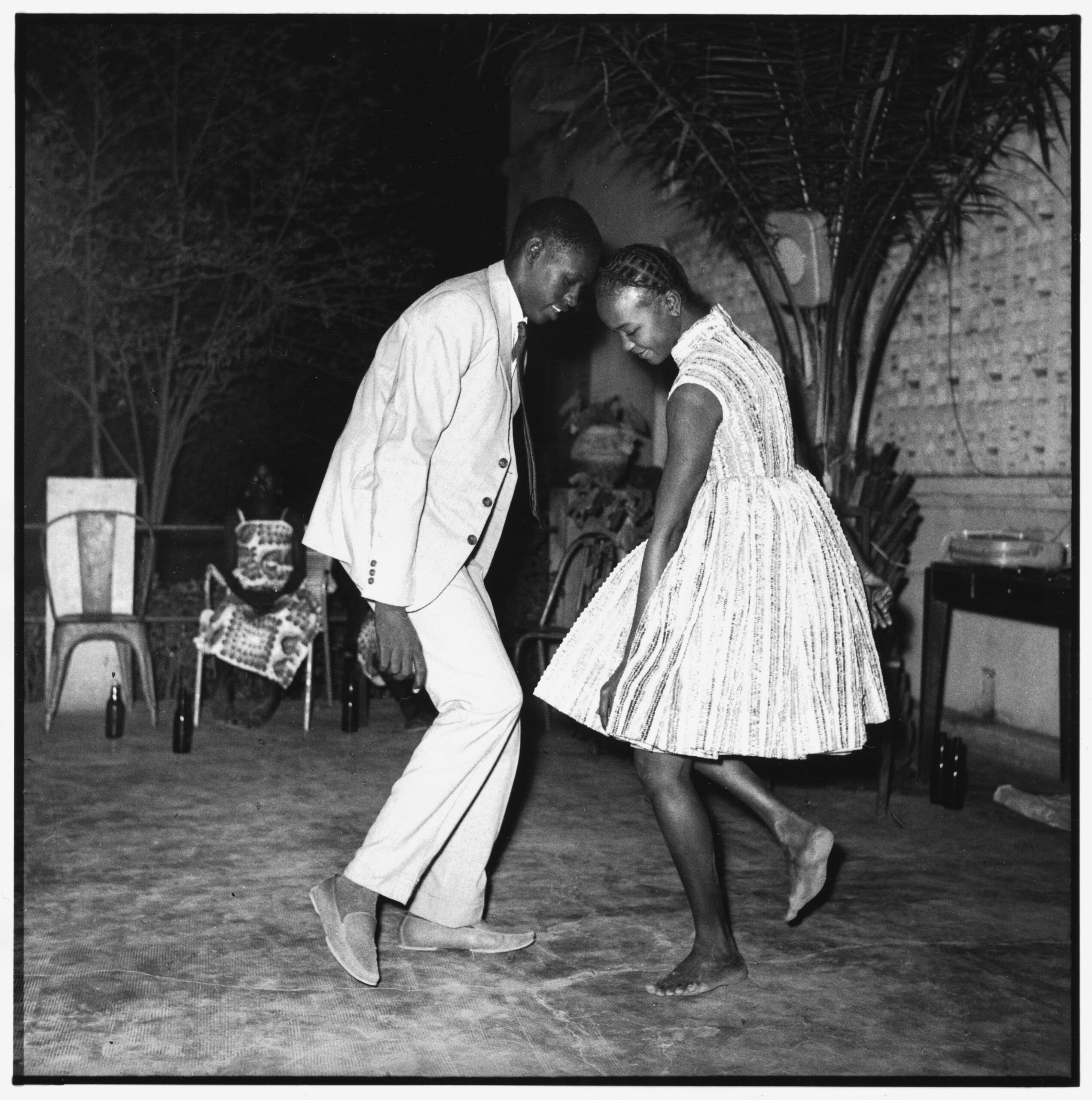A new series inviting artists, cultural producers, and writers to share their thoughts on and passion about a work of art which made an impact on them. This time ART X Lagos founder Tokini Peterside introduces her number one piece.

Malick Sidibé, Nuit de Noël (Happy Club), 1963 Gelatin silver print © Malick Sidibé Courtesy MAGNIN-A, Paris
Tokini Peterside writes about her favorite art work: Malick Sidibé, Nuit de Noël, 1963
.
I first saw this photograph at a friend’s home in London, many years ago. At the time I hadn’t fully discovered Africa’s iconic photographers such as J.D. Okhai Ojeikere, Bobson Mohanlall and Seydou Keita, who I have since come to admire for the glimpses of bygone eras and personalities that they provide.
As is the case with their work, I felt privileged to be looking at Nuit de Noël, enjoying the intimate, revealing moment between two characters whose names I would never know (though years later, I would privately name them Amadou and Binta).
I first thought the two to be lovers, because of what I perceived to be Binta’s shyness and Amadou’s forthrightness. That she is dancing barefoot and he isn’t, suggested a coy playfulness between the two, which fueled the story in my mind of a blooming courtship, so tender that they are fixated only on each other and oblivious to the photographer.
I would later learn that they were brother and sister, which would lead me to wonder at their closeness, and further, what song was playing that they were both entranced by and enjoying so gracefully.
I would also later learn of the situation in Bamako in the 1960s, and of the cultural transformations taking place through American music and the city’s parties that liberated young Malians in contrast to the curfews imposed by their strict political regimes, and that this scene was one of hundreds of others captured by Malick Sidibé, who attended several such parties every evening to document these encounters.
I realized that what I saw as a tender, fragile moment was, in fact, rooted in an act of rebellion by two characters who were bolder and far more colorful than I had first imagined them.
For this reason I have enjoyed them greatly ever since.
More Editorial